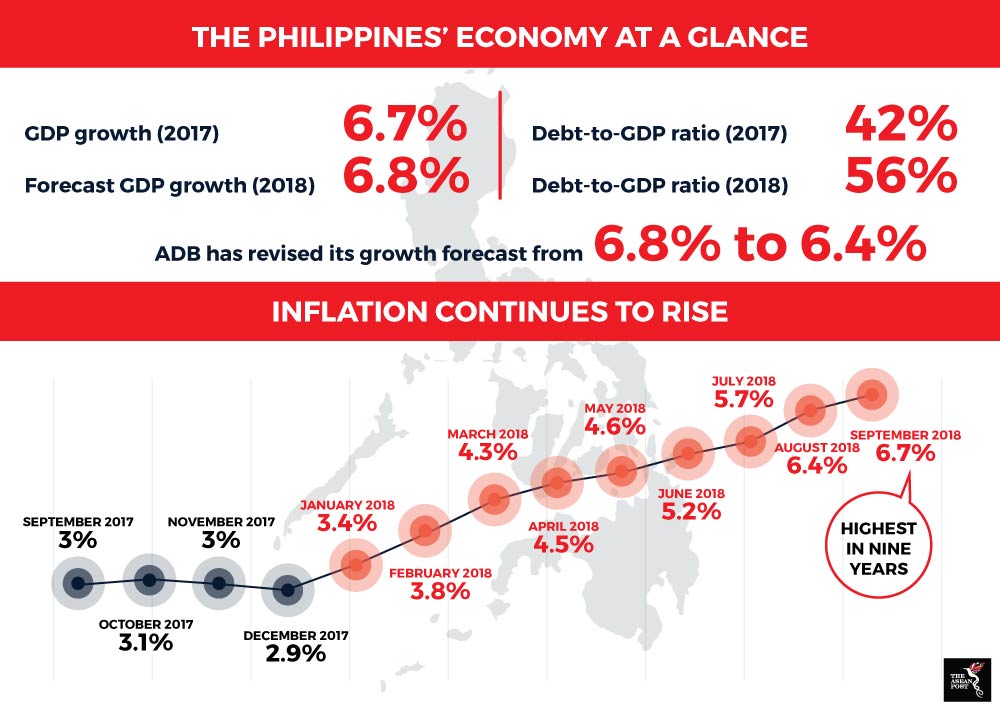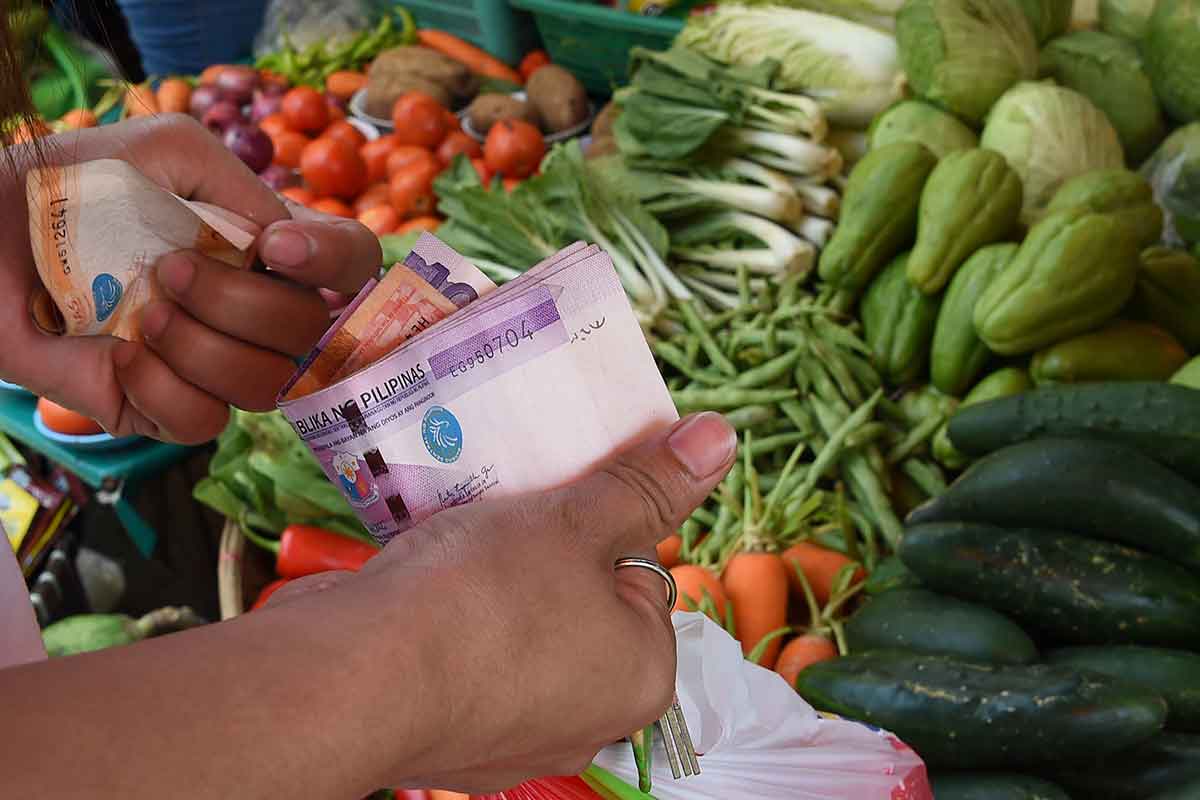Money has been tight for the ordinary Filipino this year. Over the past few months, the Philippines has seen its inflation rate rise rapidly. The latest data from the Philippine Statistics Authority reveals that the rate of inflation had reached a whopping 6.7 percent in September. The current inflation rate is at a nine-year high and is much higher than the government’s four percent upper target for this year.
In fact, the country’s rate of inflation is the highest in Southeast Asia by some margin. The second highest in the region is Vietnam, which had an inflation rate of 4.5 percent in July as opposed to the Philippines’ 5.7 percent for the same month.
Aside from that, the value of the peso has also been dropping. In September, the peso traded at its lowest in over a decade, due to various factors such as a widening trade gap – in which a country's imports exceeds its exports – and external factors such as the United States (US)-China trade war.
As a result of the increasing inflation and depreciating peso, Filipinos have seen the cost of goods rising sharply and their purchasing power rapidly eroding. The impact will be felt much more by middle- and lower-income households in the country. According to the IBON Foundation, a non-profit research group based in Manila, around 30 percent of households have lost around PHP3,418 (US$64) to PHP4,725 (US$87) since the start of the year due to inflation.
Aside from price hikes due to inflation, other factors have also caused a rise in the price of rice – a staple for most Filipinos. In August, the country recorded an eight-month continuous increase in the price of rice, reaching a three-year peak in that month. This is despite government efforts to control the price via rice imports.
The price hikes do not stop there. Recently, the Land Transportation Franchising and Regulatory Board approved fare increases for public utility vehicles such as buses and jeepneys.
The increasing cost of living in the Philippines is beginning to take a toll on many Filipinos. Social media has been buzzing with Filipinos venting their frustrations with the government’s lack of action. Many have also blamed the new Tax Reform for Acceleration and Inclusion (TRAIN) law which Duterte introduced as one of the causes for the rising price of goods.
 Source: Various
Source: Various
No solution in sight
Labour unions have also come into the picture, demanding a PHP320 (US$6) increase in workers’ wages. “There is now a very urgent need for the Metro Manila wage board to grant a substantial wage increase for workers to survive in the light of extraordinary increases in prices of basic goods and costs of services in the past 10 months,” Associated Labor Unions (ALU) spokesperson Alan Tanjusay said in a statement.
Right now, the pressure is on Duterte and the government to turn things around. The economic outlook for the Philippines will not be good if inflation is not handled properly. The Asian Development Bank (ADB) has revealed that inflation could affect the nation’s growth as it recently slashed its economic growth outlook for the Philippines to 6.4 percent from 6.8 percent for 2018.
For Duterte, if solutions to the economic woes of Filipinos are not found quickly it could affect his popularity and damage his chances of a second term in office. A survey from last month showed a double digit drop in Duterte’s approval ratings, the biggest since he came to power. The same survey also showed that 51 percent of respondents disapproved with how the Duterte administration is dealing with the issue of rising inflation.
At this juncture, there are no quick fixes for the Philippines’ economy as any solution would require long-term structural reforms.
“The government should provide real relief to millions of poor Filipinos and the middle class. This includes immediate price controls, stopping TRAIN’s consumption taxes, and a meaningful wage hike,” said Sonny Africa, executive director of the IBON Foundation.
Related stories:
